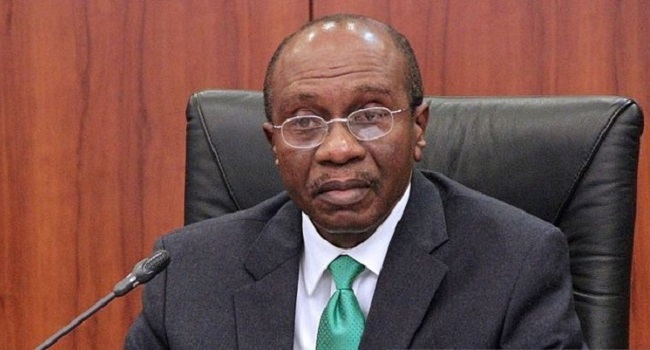Business
MPR: LCCI commends CBN over ‘insignificant reduction’

The Lagos Chamber of Commerce and Industry, LCCI, has commended the Central Bank of Nigeria (CBN) for the recent reduction of the Monetary Policy Rate, MPR, from 14 percent to 13.5 percent.
According to a statement signed by its Director-General, Mr. Muda Yusuf, though the reduction is insignificant, it is however an indication that the CBN was shifting focus from economic stability to economic growth.
Yusuf also noted that the policy was in consonance with the clamour by the private sector for a relaxation of the tight monetary policy regime in the light of weak consumer demand, fragile economic growth and high rate of unemployment.
It would be recalled that the Monetary Policy Committee, MPC of the CBN had on Tuesday reduced the MPR from 14 per cent to 13.5 per cent but retained the Cash Reserve Ratio at 22.5 percent and Liquidity Ratio at 30 percent.
The MPR had been held at a record high of 14 per cent since July 2016, when it was hiked by 200 basis points from 12 per cent.
Yusuf however called for the adjustment of other monetary instruments such as Liquidity Ratio and Cash Reserves Ratio, saying: “We acknowledge that this reduction is not materially significant, but it has a symbolic and signalling value. It is gratifying to note the shift in policy focus by the Central Bank of Nigeria from stability to growth.
“This is the appropriate policy choice at this time. The reality is that the economy is currently characterised by fragile growth at 2.3 per cent, unemployment at 23.1 per cent and youth unemployment at 36.5 per cent, high dependence on crude oil export; weak diversification and high poverty incidence.”
According to Yusuf, the economy needed both monetary and fiscal stimulus at this time, arguing that the major monetary policy instruments – Cash Reserves Ratio and Liquidity Ratio – were still high at 22.5 per cent and 30 per cent respectively as well as being in tightening mode.
Read also: Minister Ogbeh says Nigerian govt spends $60m annually on fish importation
“We expect that other monetary instruments will be adjusted over time. Economic policies are typically characterised by tradeoffs. Policy choices are driven by what is the utmost economic objective at a given point in time. The priority at this time is to stimulate growth.”
Continuing, the LCCI MD contended that it was important to address the misalignment between the banking system activities, stimulation of economic growth and promotion of economic inclusion, describing as abnormal the situation in which the nation had a prosperous banking system in the midst of a stagnating economy.
“The current configuration of the financial system and financial intermediation actions are not in tandem with poverty reduction goals, economic inclusion and the job creation objectives.
“Financial intermediation is about ensuring the flow of financial resources from the surplus segments of the economy to the deficit sectors. But this is not the case in the Nigerian economy.
“A significant portion of credits to the economy is still going to the government, the large enterprises and the oil sector which have very weak leakages within the economy. These are fundamental monetary policy challenges that need to be addressed.
“The MPC report indicates that in February, net domestic credit to the government grew by 17.2 per cent while credit to the private sector grew by 6.4 per cent. A situation where the government takes a large chunk of the credits in the economy is not a healthy one.”
On the stability of the exchange rate over the past few months, Yusuf said it was commendable but warned that the foreign exchange policy did not inadvertently perpetuate the import dependence character of the economy.
“We commend the moderation of inflation over the past few months. We request that the challenge of investment risk across all sectors of the economy be addressed.
“The fiscal and monetary authorities need to work collaboratively to moderate investment risk in the economy. This is very critical to boost the flow of credit to the private sector, boost investment growth and create jobs”, Yusuf said.
Join the conversation
Support Ripples Nigeria, hold up solutions journalism
Balanced, fearless journalism driven by data comes at huge financial costs.
As a media platform, we hold leadership accountable and will not trade the right to press freedom and free speech for a piece of cake.
If you like what we do, and are ready to uphold solutions journalism, kindly donate to the Ripples Nigeria cause.
Your support would help to ensure that citizens and institutions continue to have free access to credible and reliable information for societal development.






















